Filter by
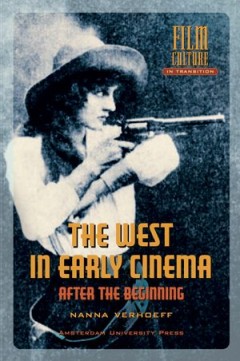
The West in Early Cinema: After the Beginning
Verhoeff investigates the emergence of the western genre, made in the first two decades of cinema (1895-1915). By analyzing many unknown and forgotten films from international archives she traces the relationships between films about the American West, their surrounding films, and other popular media such as photography, painting, (pulp) literature, Wild West Shows and popular ethnography. Thro…
- Edition
- -
- ISBN/ISSN
- 9789053568316
- Collation
- -
- Series Title
- -
- Call Number
- 791.43 VER w
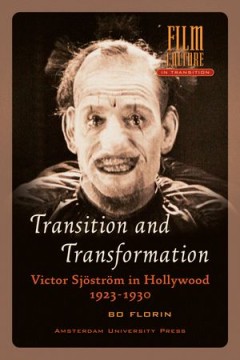
Transition and Transformation
In 1923, Victor Sjöström (1879-1960) got an offer from Goldwyn Pictures to come to Hollywood. This was nothing unusual for a successful European director: - Metro's bring - ing them in by car load - , as Photoplay stated in 1926. At the time, Sjöström was Sweden's most renowned director, who had become world famous for his austere and naturalistic film style. Sjöström stayed in Hollywood …
- Edition
- -
- ISBN/ISSN
- 9789089645043
- Collation
- -
- Series Title
- -
- Call Number
- 791.43 FLO t
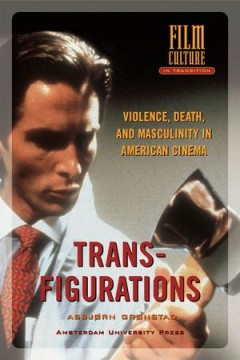
Transfigurations: Violence, Death and Masculinity in American Cinema
In many senses, viewers have cut their teeth on the violence in American cinema: from Anthony Perkins slashing Janet Leigh in the most infamous of shower scenes; to the 1970s masterpieces of Martin Scorsese, Sam Peckinpah and Francis Ford Coppola; to our present-day undertakings in imagining global annihilations through terrorism, war, and alien grudges. Transfigurations brings our cultural obs…
- Edition
- -
- ISBN/ISSN
- 9789089640109
- Collation
- -
- Series Title
- -
- Call Number
- 791.43 GRO t
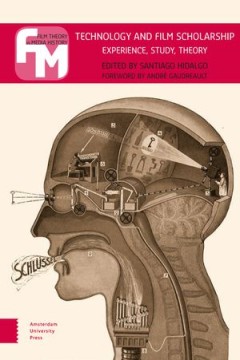
Technology and Film Scholarship: Experience, Study, Theory
This volume brings together a wide range of explorations of the ways in which technological innovations have established new and changing conditions for the experience and study of film. The book offers analyses by such leading figures in film studies as Tom Gunning and Charles Musser, who examine the ways in which technological changes have altered the ways how cinema is conceived and how it i…
- Edition
- -
- ISBN/ISSN
- 9789048525270
- Collation
- -
- Series Title
- -
- Call Number
- 791.43 HID t
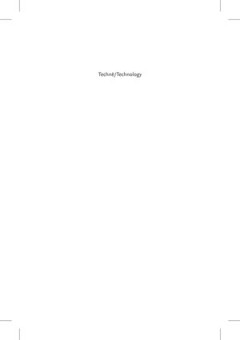
Techné/Technology: Researching Cinema and Media Technologies - Their Develop…
This fourth title in the series The Key Debates sets out where the term techne comes from, how it unleashed a revolution in thought and how the concept in the midst of the current digital revolution, once again, is influencing the study of film. In addition, the authors - among them André Gaudreault, Geoffrey Wintrop-Young, Martin Lefevbre, Dominique Chateau, Nanna Verhoeff, Andreas Fickers an…
- Edition
- -
- ISBN/ISSN
- 9789089645715
- Collation
- -
- Series Title
- -
- Call Number
- 791.43 OEV t
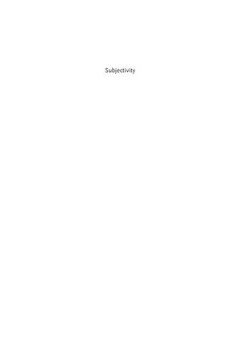
Subjectivity. Filmic Representation and the Spectator's Experience
Subjectivity is a central concept in film theory, philosophy and cultural studies. It was also a key term in the reception of the Nouvelle Vague film movement in France and Italy from the start of 1945. This timely volume explores the ways in which the concept of subjectivity has made its way into film theory, history, practice and criticism, as well as the confrontations of the subject with th…
- Edition
- -
- ISBN/ISSN
- 9789089643179
- Collation
- -
- Series Title
- -
- Call Number
- 791.43 CHA s
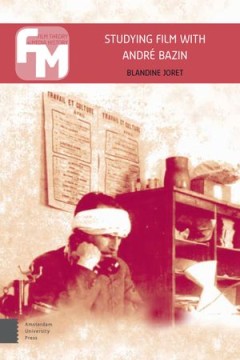
Studying Film with André Bazin
The impact of French film critic André Bazin (1918-1958) on the development of film studies, though generally acknowledged, remains contested. A passionate initiator of film culture during his lifetime, his ideas have been challenged, defended and revived throughout his afterlife. Studying Film with André Bazin offers an entirely original interpretation of major concepts from Bazin’s legacy…
- Edition
- -
- ISBN/ISSN
- 9789048542086
- Collation
- -
- Series Title
- -
- Call Number
- 791.43 JOR s
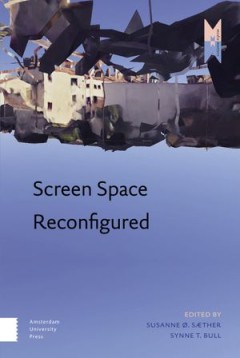
Screen Space Reconfigured
Screen Space Reconfigured is the first edited volume that critically and theoretically examines the many novel renderings of space brought to us by 21st century screens. Exploring key cases such as post-perspectival space, 3D, vertical framing, haptics, and layering, this volume takes stock of emerging forms of screen space and spatialities as they move from the margins to the centre of contemp…
- Edition
- -
- ISBN/ISSN
- 9789048529056
- Collation
- -
- Series Title
- -
- Call Number
- 791.43 SCR s
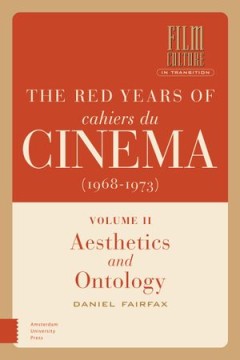
The Red Years of Cahiers du Cinéma (1968-1973), Volume II: Aesthetics and On…
The uprising which shook France in May 1968 also had a revolutionary effect on the country's most prominent film journal. Under editors Jean-Louis Comolli and Jean Narboni, Cahiers du cinéma embarked on a militant turn that would govern the journal's work over the next five years. With a Marxist orientation inspired by the thinking of Louis Althusser, Jacques Lacan and Roland Barthes, the ""re…
- Edition
- -
- ISBN/ISSN
- 9789048543915
- Collation
- -
- Series Title
- -
- Call Number
- 791.43 FAI r
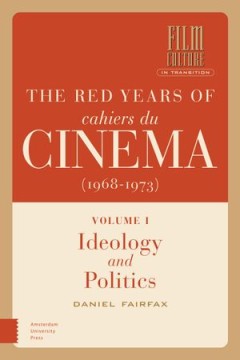
The Red Years of Cahiers du Cinéma (1968-1973), Volume I
The uprising which shook France in May 1968 also had a revolutionary effect on the country's most prominent film journal. Under editors Jean-Louis Comolli and Jean Narboni, Cahiers du cinéma embarked on a militant turn that would govern the journal's work over the next five years. With a Marxist orientation inspired by the thinking of Louis Althusser, Jacques Lacan and Roland Barthes, the "red…
- Edition
- -
- ISBN/ISSN
- 9789048543908
- Collation
- -
- Series Title
- -
- Call Number
- 791.43 FAI r
 Computer Science, Information & General Works
Computer Science, Information & General Works  Philosophy & Psychology
Philosophy & Psychology  Religion
Religion  Social Sciences
Social Sciences  Language
Language  Pure Science
Pure Science  Applied Sciences
Applied Sciences  Art & Recreation
Art & Recreation  Literature
Literature  History & Geography
History & Geography